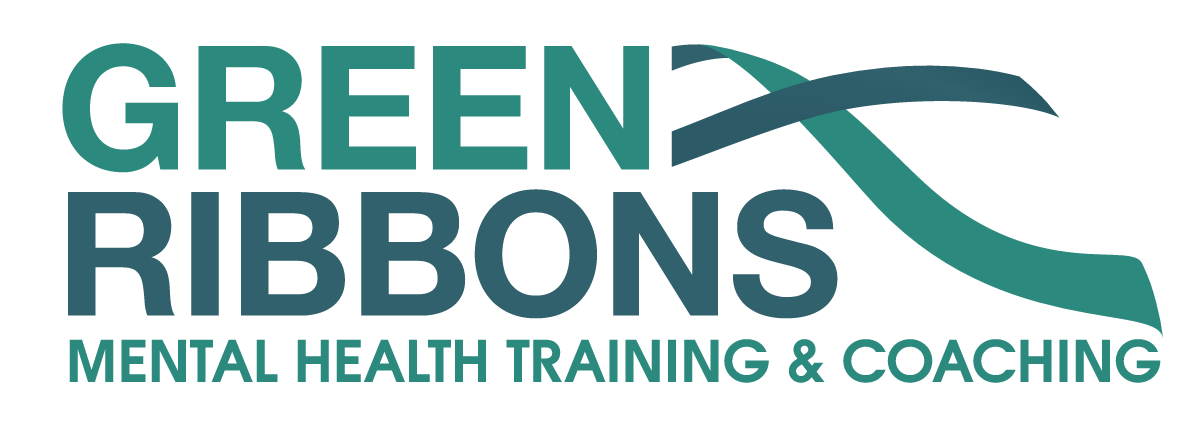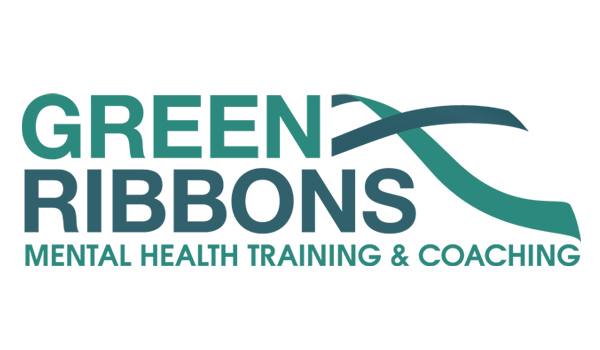1. Introduction
The veterinary profession comes with its fair share of challenges and stressors. In Scotland, as in other parts of the UK, veterinarians face unique mental health challenges that can impact their well-being and ability to provide care. In this post, we will explore some of the key mental health challenges faced by veterinarians in Scotland and discuss ways to support these professionals in maintaining their mental health.
Studies have shown that people working within the Veterinarian Sector face are likely to face mental health challenges. Some key findings from those studies:
- A study conducted by the Royal College of Veterinary Surgeons (RCVS) in 2014 found that around 12% of veterinary surgeons in the UK had experienced a mental health condition in the previous year.
- A further study conducted by the RCVS in 2016 found that around 60% of veterinary surgeons in the UK had experienced a mental health condition at some point in their career.
- A survey conducted by the Society of Practising Veterinary Surgeons (SPVS) in 2018 found that around 40% of veterinary surgeons in the UK were experiencing high levels of stress, and 38% were experiencing symptoms of anxiety or depression.
While these statistics do not specifically focus on veterinary surgeons in Scotland, they do suggest that mental health challenges are common in the veterinary profession as a whole.
2. What Mental Health factors might affect veterinarians in Scotland?
- Emotional demands: One of the most significant challenges faced by veterinarians is the emotional demands of their work. Dealing with animals in pain or distress, making difficult decisions regarding euthanasia or treatment options, and having to break bad news to pet owners can all take a toll on a veterinarian’s mental health. Over time, this emotional strain can contribute to feelings of sadness, guilt, or even depression.
- Workload and long hours: Veterinarians often work long hours, including nights, weekends, and holidays. This demanding schedule can lead to burnout, exhaustion, and a lack of work-life balance. The pressure to maintain a high level of care and professionalism despite the physical and mental fatigue can exacerbate stress levels and negatively impact mental well-being.
- Financial stress: The cost of veterinary education in Scotland, as in other parts of the world, can be high. Many veterinarians graduate with substantial student loan debt, which can contribute to financial stress. This financial burden, coupled with relatively modest salaries compared to other medical professionals, can add to the mental strain experienced by veterinarians.
- High expectations and client communication: Veterinarians in Scotland face high expectations from pet owners, who often view their pets as family members. This can result in pressure to provide optimal care, even when resources or treatment options are limited. Additionally, navigating difficult conversations with clients regarding costs, treatment options, and end-of-life decisions can be emotionally challenging and stressful.
- Compassion fatigue: Compassion fatigue is a form of emotional exhaustion that can result from constantly caring for sick or injured animals and witnessing their pain and suffering. Over time, this can lead to a decline in empathy and a reduced ability to provide compassionate care, further impacting a veterinarian’s mental health.
- Professional isolation: In Scotland, some veterinarians work in small practices or rural areas, which can lead to feelings of professional isolation. This lack of support from colleagues and limited access to professional resources can exacerbate stress and contribute to mental health issues.
3. What strategies can veterinarians in Scotland undertake to assist their mental health?
Veterinarians in Scotland can undertake various strategies to support their mental health and well-being. These strategies can help manage stress, build resilience, and maintain a healthy work-life balance. Some of these strategies include:
- Self-care: Prioritise self-care by engaging in activities that promote relaxation, stress reduction, and overall well-being. This may include exercise, meditation, spending time in nature, pursuing hobbies or interests, and ensuring proper nutrition and sleep.
- Work-life balance: Establish a healthy work-life balance by setting boundaries between work and personal life. Schedule regular time off, take breaks during the workday, and disconnect from work-related communications during personal time.
- Peer support: Connect with colleagues and peers in the veterinary profession to share experiences, challenges, and coping strategies. Building a support network can help alleviate feelings of isolation and provide a sense of camaraderie.
- Professional development: Participate in continuing education and professional development opportunities to enhance skills, expand knowledge, and build a strong professional network. This can contribute to increased job satisfaction and reduced stress.
- Seek professional help: If experiencing signs of excessive stress, burnout, or mental health issues, consider seeking support from a mental health professional, such as a counsellor, therapist, or psychologist.
- Utilise available resources: Access available mental health resources, such as helplines, support groups, and online resources, to help manage stress and build resilience.
- Mindfulness and stress management techniques: Practice mindfulness, deep breathing exercises, progressive muscle relaxation, or other stress management techniques to help alleviate stress and anxiety.
- Set realistic expectations: Recognise that it is not possible to save every animal or meet every client’s expectations. Set realistic expectations for yourself, and be compassionate towards yourself when things don’t go as plaed.
- Advocate for workplace well-being: Encourage employers and professional organisations to prioritise mental health in the workplace by offering support, resources, and training to help veterinary professionals maintain their mental well-being.
By implementing these strategies, veterinarians in Scotland can take proactive steps towards maintaining their mental health and well-being, ensuring they can continue to provide the best possible care for their patients while maintaining a healthy work-life balance.
4. What mental health resources are available to veterinarians in Scotland?
Several mental health resources are available to veterinarians in Scotland, providing support, guidance, and assistance to those who may be struggling with stress, burnout, or other mental health issues. These resources include:
- Vetlife: Vetlife is a UK-wide charity that offers free, confidential support to anyone in the veterinary community, including veterinarians, veterinary nurses, and students. They provide a 24-hour helpline, anonymous email support, and financial assistance for those in need. More information can be found on their website: https://www.vetlife.org.uk/
- Royal College of Veterinary Surgeons (RCVS) Mind Matters Initiative: The Mind Matters Initiative aims to improve mental health and well-being within the veterinary profession. They offer resources, training, and support to help veterinary professionals manage stress, build resilience, and maintain mental well-being. More information can be found on their website: https://www.vetmindmatters.org/
- Samaritans: Samaritans is a charity that provides emotional support to anyone in distress, struggling to cope, or at risk of suicide. They offer a 24-hour helpline, email support, and local branches across the UK, including Scotland. More information can be found on their website: https://www.samaritans.org/
- NHS 24: The NHS 24 is a confidential telephone service that provides health advice and support for people in Scotland. They offer a mental health helpline that can help veterinarians access advice, support, and local resources. More information can be found on their website: https://www.nhs24.scot/
- Local mental health resources: Veterinarians in Scotland can also access local mental health resources, such as counselling services, support groups, and therapy sessions, through their GP or by searching for services in their area.
- Professional networks and associations: Joining professional networks and associations can provide veterinarians with opportunities to connect with colleagues, share experiences, and access mental health resources tailored to the veterinary profession.
By accessing these mental health resources, veterinarians in Scotland can find support, guidance, and assistance in managing their mental well-being and addressing any challenges they may face in their professional lives.
5. Why should veterinarians do a mental health awareness course?
Veterinarians, like all healthcare professionals, are susceptible to experiencing mental health challenges due to the demands and stress of their job. A mental health awareness course can help veterinarians better understand the warning signs of mental health issues, reduce the stigma surrounding mental health, and learn coping mechanisms to manage stress and maintain good mental health.
Reasons why veterinarians should consider taking a mental health awareness course include:
- Mental health challenges are prevalent in the veterinary profession: Veterinarians are at higher risk of experiencing mental health challenges such as depression, anxiety, and suicide due to factors such as long work hours, high stress levels, and emotional demands of their work.
- Improved self-awareness: Mental health awareness courses can help veterinarians develop a better understanding of their own mental health and the impact of their work on their well-being. They can learn to recognise warning signs of mental health issues and take proactive steps to manage their own mental health.
- Better patient care: Veterinarians with good mental health are better equipped to provide high-quality care to their patients. By taking care of their own mental health, they can maintain their focus and concentration, communicate effectively with their clients, and make sound clinical decisions.
- Improved relationships with clients and colleagues: Veterinary professionals who prioritise mental health and well-being are likely to have better relationships with their clients and colleagues. They are better equipped to handle difficult situations, manage stress, and communicate effectively.
- Reduced stigma surrounding mental health: Mental health awareness courses can help reduce the stigma surrounding mental health challenges. By openly discussing mental health in the veterinary profession, veterinarians can create a supportive and understanding environment for themselves and their colleagues.
Overall, a mental health awareness course can provide veterinarians with the tools and knowledge they need to manage their own mental health and provide the best care possible to their patients. Scottish Mental Health First Aid (SMHFA) is a training program developed in Scotland to equip individuals with the skills and knowledge to provide initial support to someone experiencing mental health problems or who is in a mental health crisis. The goal of SMHFA is to promote early intervention, reduce stigma, and increase awareness of mental health issues in the community. Green Ribbons has developed a tailored SMHFA course for Vets, addressing some of the unique issues in the sector, based on the personal experience of family members who work within the industry. You can out more at our page on: Scottish Mental Health First Aid for Vets.
6. Conclusion
The mental health challenges faced by veterinarians in Scotland are multifaceted and complex. It is crucial for the veterinary community, industry stakeholders, and policymakers to recognise these challenges and work together to create a supportive environment for these professionals. By prioritising self-care, establishing peer support networks, providing mental health resources, and promoting continuing education and training, we can help ensure that veterinarians in Scotland are better equipped to manage their mental well-being. In doing so, we not only support the individuals working in this vital profession but also contribute to the continued high-quality care they provide to the animals they serve. By fostering a more compassionate and supportive veterinary community, we can help ensure the long-term mental health and well-being of Scotland’s veterinarians.
Scottish Mental Health First Aid (SMHFA) For Vets
Green Ribbons has developed a Tailored Training Course specifically designed for Veterinary Practices
Find out More










